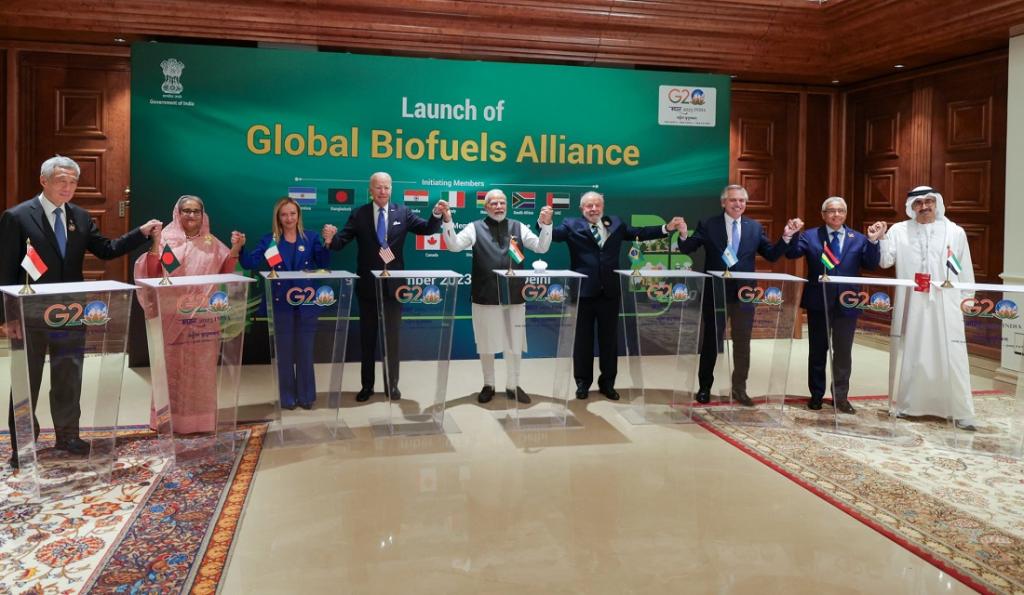
At the G20 Summit, Prime Minister Modi unveiled the Global Biofuel Alliance, which aims to advance sustainable biofuels and lessen reliance on fossil fuels.
The Global Biofuel Alliance was inaugurated on Saturday during the G20 Summit in New Delhi by Prime Minister Narendra Modi, US President Joe Biden, Brazilian President Luiz Inacio, Argentina’s Alberto Fernández, and Italian Prime Minister Giorgia Meloni, among others.
In a social media post thanking the members, Modi stated, “The launch of the Global Biofuels Alliance marks a significant milestone in our pursuit of sustainability and clean energy.”
What is the Global Biofuels Alliance trying to achieve?
India is the G20 Chair, and it is leading a project called the Global Biofuel Alliance (GBA). According to a statement from the Ministry of External Affairs, the Alliance seeks to hasten the global adoption of biofuels by encouraging technological advancements, expanding the use of sustainable biofuels, and establishing rigorous standards and certification procedures with the active participation of many stakeholders.
The alliance would also act as a hub for experts and a central knowledge store. The ministry noted that GBA aims to serve as a catalyst for international cooperation in promoting and broadly implementing biofuels.
What are India’s advantages in the alliance?
As the founder and director of Biofuels Junction, Ashvin Patil told HT, “Collaboration within the Global Biofuel Alliance and with other countries will play a pivotal role in India’s transition to clean energy, facilitating technology exchange, hastening the adoption of eco-friendly biofuels, reducing dependence on fossil fuels, and aligning with climate and energy goals.
According to the Indian Biogas Association (IBA), the biofuel alliance might provide the G20 with the chance of USD 500 billion over the next three years.
With a Compound Annual Growth Rate (CAGR) of almost 22% over the previous six years, India significantly boosted the proportion of renewable energy in the country’s overall energy mix. The solar and wind energy industries have also seen tremendous growth in the nation; throughout this time, they have experienced CAGRs of 38% and 30%, respectively.
The Ministry of New and Renewable Energy reports that India currently produces 1151 MT per day of compressed biogas and biogas. Even conservative projections indicate that this may rise to 1750 MT per day by 2025 with a concerted effort in the sector.
IBA said the alliance will assist G20 nations in reducing their reliance on fossil fuels. Within the next three years, it is anticipated that the overall import bill for non-fossil fuels could be substantially reduced, helping these nations achieve their Sustainable Development Goals.
![]()




